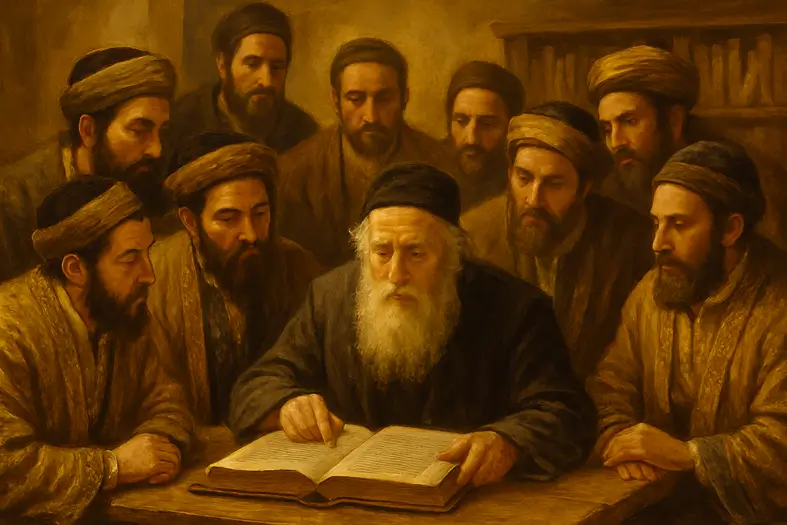


We are commanded to cleave to Hashem by attaching ourselves to His Torah scholars and those who embody His ways.
This mitzvah commands Israel to “cleave to Hashem.” The Sages asked: How can one cleave to the Divine, Who is “a consuming fire”? (Deut. 4:24). The Talmud (Ketubot 111b, Pesachim 49b) explains that one fulfills this by cleaving to Torah sages — marrying their daughters, engaging in business with them, and learning from their conduct. Rambam (Sefer HaMitzvot, Aseh 6; Hilchot De’ot 6:2) codifies this as a practical command to associate with those who exemplify Divine wisdom, for through them one draws near to Hashem.
Sefer HaChinuch (Mitzvah 434) emphasizes that Torah is embodied not only in books but in living people who transmit it. Clinging to them means absorbing their humility, wisdom, and sanctity, thereby cultivating one’s own spiritual life. Rashi (Deut. 11:22) interprets “cleaving” as staying close to sages and disciples, since their ways are Hashem’s ways. Midrash Tanchuma adds that connection to tzaddikim is itself connection to Hashem, as they are vessels of His presence in the world.
Commentary & Classical Explanation:
Contrast with Walking in Hashem’s Ways (Mitzvah 11):
Parallel to Honoring Torah Teachers (Mitzvah 23):
Choosing Torah-Centered Relationships
Learning from Living Examples
Mentorship and Guidance
Spiritual Community
Counteracting Secular Influence
Transmission of Torah Across Generations


Represents Emunah—the deep, inner trust in Hashem’s presence, oneness, and constant involvement in our lives. This badge symbolizes a heartfelt connection to G-d, rooted in belief even when we cannot see. It is the emotional and spiritual core of many mitzvot.
Mitzvot that strengthen communal life — showing up, participating, supporting, and belonging. Community is where holiness is shared, prayers are multiplied, and responsibility becomes collective.
Represents the concept of spiritual intentionality, purity, and sanctity—set apart for a higher purpose.
Practices that cultivate inner modesty and self-awareness. These mitzvot teach us to step back from ego, create space for others, and recognize our place before G-d.
Reflects mitzvot rooted in love—of G‑d, others, and the world we are entrusted to uplift.
Mitzvot that define and deepen the relationship between a person and their Creator. These include commandments involving belief, prayer, Shabbat, festivals, sacrifices, and personal holiness — expressions of devotion rooted in divine connection.

Dive into mitzvos, prayer, and Torah study—each section curated to help you learn, reflect, and live with intention. New insights are added regularly, creating an evolving space for spiritual growth.

Explore the 613 mitzvos and uncover the meaning behind each one. Discover practical ways to integrate them into your daily life with insights, sources, and guided reflection.

Learn the structure, depth, and spiritual intent behind Jewish prayer. Dive into morning blessings, Shema, Amidah, and more—with tools to enrich your daily connection.

Each week’s parsha offers timeless wisdom and modern relevance. Explore summaries, key themes, and mitzvah connections to deepen your understanding of the Torah cycle.